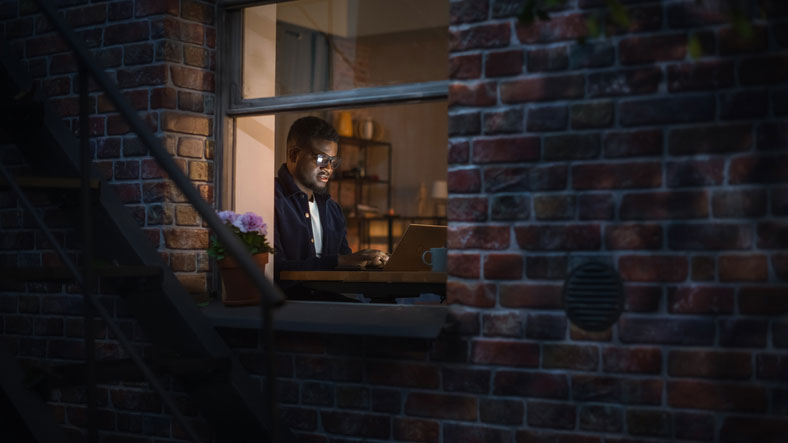Written by Rebecca Turley

Everyone who lives here in Brooklyn knows it’s amazing. From the Brownstones along tree-lined streets to the hamminess of Coney Island… Brooklyn is brimming with the kind of love and community that’s made people want to put down roots here for generations. Despite all the borough has going for it, social issues like homelessness, drug abuse, and mental illness are persistent and pervasive.
It only makes sense. With nearly 2.7 million living here, Brooklyn is NYC’s most populous borough, and it continues to grow. In the last decade alone, the population here has increased by nearly 10 percent. A lot of that new blood has brought in new money, gentrifying the borough and pushing real estate prices higher.
For the ordinary folks here whose incomes haven’t kept pace with it all, poverty is still a very real thing. Very nearly 18 percent of the people here live below the poverty line, second only to the Bronx. It also leads all of NYC’s boroughs for the number of children living below the poverty line – about 580,000. Access to healthcare, affordable housing, and food insecurity are just some of the serious issues facing many Brooklyn residents.

Social workers here in Brooklyn are working hard to hold the social safety net tight. And the strength to do it comes with the kind of knowledge and skill you can only get from a degree in social work.
If You Choose to Serve the People of Brooklyn as a Licensed Social Worker, an MSW is in Your Future
It’s entirely possible to find your niche in Brooklyn’s social work professional community with an undergraduate degree. Everything from general outreach work in the community to the vital administrative work on the back-end that keeps everything clicking would be on the table. But the kind of up-close-and-personal counseling, domestic intervention, and case management work that most people think of when they set their sights on a career in social work requires a state license. And that license requires a Master of Social Work (MSW) degree.
The New York State Education Department oversees credentialing for Licensed Clinical Social Workers (LCSW) and Licensed Master Social Workers (LMSW) in the Empire State. The LMSW comes first, followed by the LCSW following a period of supervised experience in diagnosis and psychotherapy. Both licenses require you to hold a Master of Social Work (MSW).
There are two paths to earning an MSW: (1) earn a bachelor’s degree in a human services field like community mental health, psychology, sociology, or health and human services, and then complete a traditional, two-year MSW; or (2) build on a Bachelor of Social Work (BSW) that provides you with an advanced-standing status that allows you to earn your MSW in as little as one year.
NYC has no shortage of BSW and MSW programs offered through nationally renowned schools of social work, some of which are located in Brooklyn:
Long Island University, Post & Brooklyn Collaborative
School of Health Professionals
Accreditation: MSCHE
Brookville, NY

MSW (on-campus)
Also Offers:
- BS in Social Work
- Doctorate of School Work
The Long Island MSW program is a unique collaboration between LIU Post (Brookville) and LIU Brooklyn, offering students courses, resources, services, and a coalition of faculty from both locations. This outstanding graduate program allows students to specialize in one of five areas: substance use and addictive behaviors, child and family welfare, forensic social work; gerontology, or nonprofit management. Varied fieldwork experiences ensure a well-rounded academic experience, and the design of the program’s curriculum also prepares students to earn the New York Certification in Alcohol and Substance Abuse Counseling (CASAC) designation and advanced state certification in forensic social work.
Touro University
Graduate School of Social Work
Accreditation: MSCHE
New York, NY
(other location in Manhattan, NY)

MSW (on-campus, online)
Offering both an in-person cohort and a fully online program, Touro University’s MSW is designed with flexibility in mind. Students of this program can also choose from a part-time, full-time, or 16-month accelerated format. The traditional MSW boasts courses in the evenings and on the weekends, while the online format can be completed entirely online. Specialization options, which include The Aging Population, Social Work in Schools, and Mental Illness, provide students with opportunities to distinguish themselves in the field and gain valuable experience with underserved and vulnerable populations.
Long Island University – Brooklyn
School of Health Professions
Accreditation: MSCHE
Brooklyn, NY

MSW
Also Offers:
- BS in Social Work (BSSW)
- Doctorate of School Work
Long Island University Brooklyn’s BS in Social Work prepares students to participate in careers in social work and other human services field and provides aspiring social workers with a solid foundation that allows them to assume advanced-standing positions in MSW programs offered at schools like LIU. Just some of the perks of this program include a flexible curriculum with classes offered on the weekdays and weekday evenings, career planning and placement assistance, and small class sizes for individualized learning.
Medgar Evers College, CUNY
Social Work Department
Accreditation: MSCHE
Brooklyn, NY

BS in Social Work (BSSW) (on-campus)
The Medgar Evers College, the youngest four-year senior college in the City University of New York, offers the BS in Social Work. This program is built on a liberal arts foundation and features a challenging, generalist curriculum that includes courses in research, social work practice, field education, social and economic justice, and more. This program is designed to prepare students for entry-level positions in social services organizations or for the MSW. In addition to the program’s core curriculum, students here have the option to specialize in child welfare, substance abuse, or gerontology.
